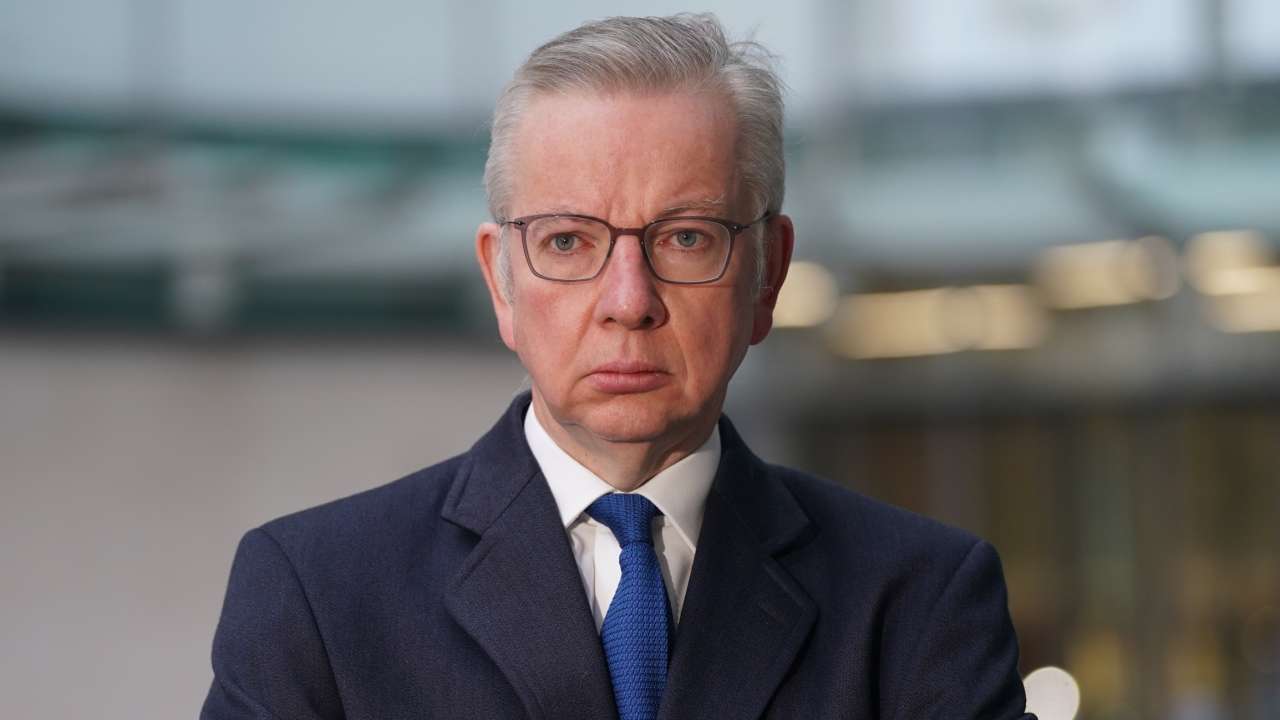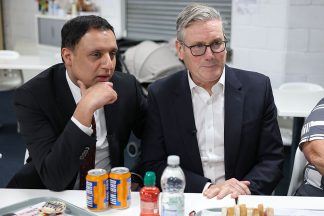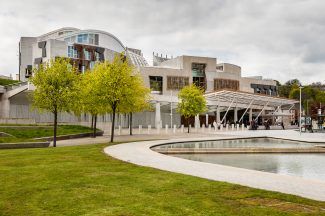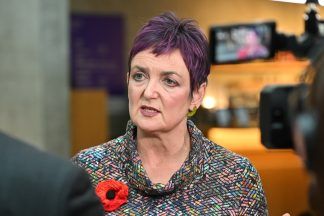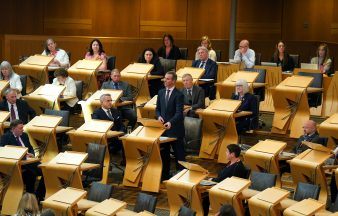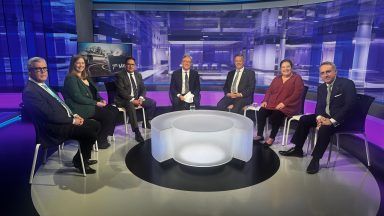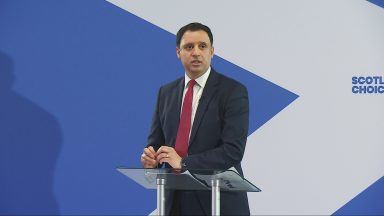ITV News Political Reporter Jasmine Cameron-Chileshe and Correspondent Harry Horton report
Government Minister Michael Gove has named groups that will be “re-assessed” against his new definition of extremism.
Outlining his new definition in the Commons, Gove listed five different campaign groups who will be examined in light of the new definition.
Groups covered by the definition, which is designed to include conduct that falls short of criminality but is still deemed “unacceptable”, will be denied access to funding and prevented from meeting ministers and officials or gaining a platform that could “legitimise” them through association with the government.
Gove named two groups he described as “extreme right-wing”, describing how they “promote neo-Nazi ideology, argue for forced repatriation, a white ethno-state, and the targetting of minority groups for intimidation”.
He also listed three Muslim organisations which he said “give rise to concern for their Islamist orientation and views”.
The full list of groups named in Parliament on Thursday are:
- British National Socialist Movement – a white supremacist group that originated in 1968.
- Patriotic Alternative – a far-right nationalist group which grew out of splits in the BNP.
- Muslim Association of Britain – A British Sunni Muslim organisation, reported to have connections to the Muslim Brotherhood and Hamas.
- Cage – a group that campaigns on behalf of communities affected by the “war on terror”.
- Mend – a group that aims to tackle Islamophobia and to encourage political, civic and social engagement within British Muslim communities.
Watch the moment Michael Gove listed the groups the government will be looking at
A full list of organisations covered by the new definition of extremism is to be published “in the coming weeks”, Downing Street said.
Labour deputy leader Angela Rayner told the Commons: “Hateful extremism threatens the safety of our communities and the unity of our country. Everyone across this House can agree that this is a serious problem which demands a serious response.
“So, I want to begin by saying from the outset when it comes to our national security, when it comes to the threat of radicalisation, when it comes to the toxic scourge of Islamophobia, neo-Nazism, antisemitism or any other corrosive hatred, the whole House can and should work together.
“The way the Government does this work matters and the language we all use is important. And I want to welcome the Secretary of State’s opening words that it is our diversity and our values which make our country stronger.”
The Archbishops of Canterbury and York have issued a warning that the definition could do more harm, rather instead of “providing clarity or striking a conciliatory tone”.
The definition has been updated to respond to an increased extremist threat since the October 7 attacks in Israel, the government said.
It aims to ensure that the government does not “legitimise” extremist groups by “inadvertently” providing a platform to them.
Communities Secretary Michael Gove, who has overseen the formulation of the new definition, said it would “ensure that government does not inadvertently provide a platform to those setting out to subvert democracy and deny other people’s fundamental rights”.
Speaking to ITV News, Gove denied the new definition will disproportionately target Muslim communities, saying “it’s important a distinction is drawn between Islam, which is a religion of peace… and Islamism, which is a distinct ideology traced back to the Muslim brotherhood”.
“What we need to do is to make sure that whether it’s Anti-Muslim hatred or antisemitism, we take steps to deal with that”, he said.
The new definition has proven controversial, with criticism coming from both figures in Labour and the Conservative party.
What is the new definition?
The definition describes extremism as “the promotion or advancement of an ideology based on violence, hatred or intolerance” that aims to “negate or destroy the fundamental rights and freedoms of others” or “undermine, overturn or replace the UK’s system of liberal parliamentary democracy and democratic rights”.
It also includes those who “intentionally create a permissive environment for others to achieve” either of those aims. The new definition comes into force on Thursday.
The overhaul of the definition follows Rishi Sunak’s impromptu speech in Downing Street on March 1 in which he warned of “forces here at home trying to tear us apart”, although work on the definition has been ongoing for a number of months.
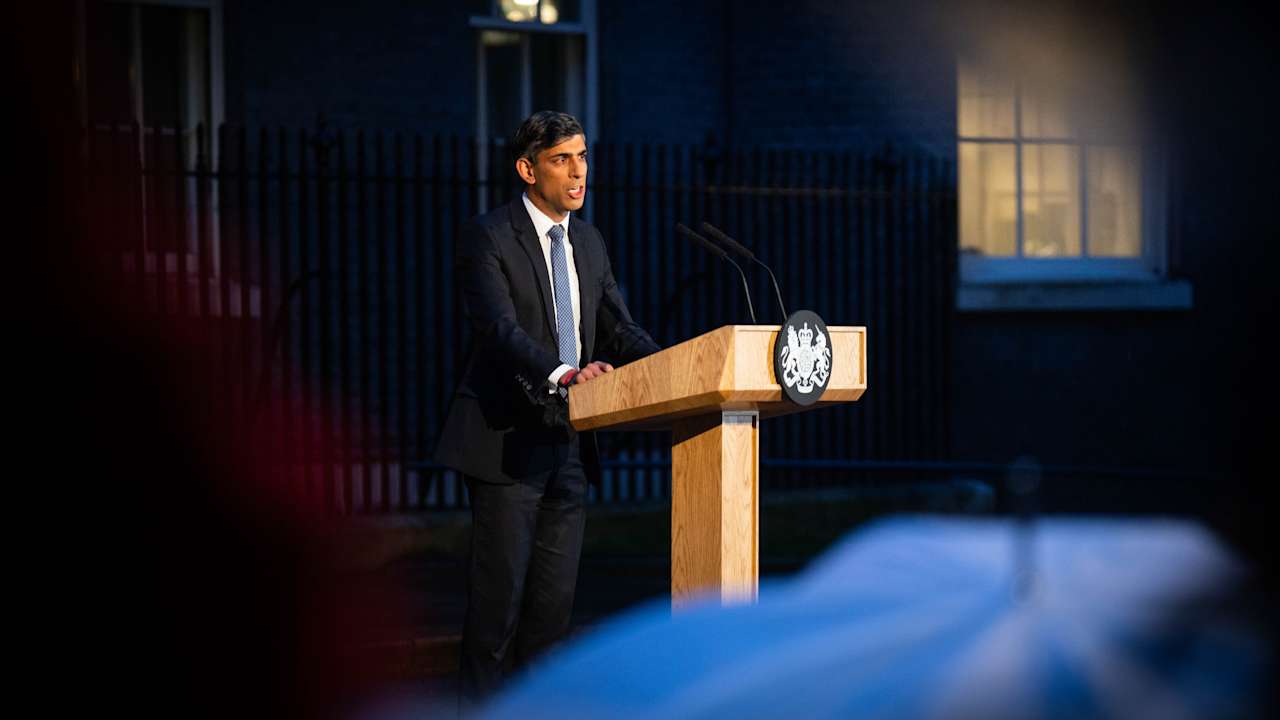
Why has it been updated?
The 2011 definition described extremism as “vocal or active opposition to fundamental British values, including democracy, the rule of law, individual liberty and mutual respect and tolerance of different faiths and belief” as well as “calls for the death of members of our armed forces”.
The government said that the new definition is “narrower and more precise” than the 2011 definition, which “did not provide the detail we now need to assess and identify extremism”.
Instead, the new definition helps to “clearly articulate” how extremism is “evidenced” through the public behaviour of extremists.
What will happen to groups who meet the new definition?
Groups covered by the definition will be denied access to government funding and prevented from meeting ministers and officials or gaining a platform that could legitimise them through association with the government.
The government is expected to publish a list of organisations covered by it in the coming weeks.
What are the criticisms of the new definition?
Conservative peer Baroness Warsi has warned that the new definition takes a “divide-and-rule approach” that is intended to “breed division and encourage mistrust”.
While the Archbishops of Canterbury and York issued a warning that the definition could “vilify the wrong people and risk yet more division” instead of “providing clarity or striking a conciliatory tone”.
In a joint statement, the Most Reverend Justin Welby and the Most Reverend Stephen Cottrell said the “growing division between different communities in this country” is a threat to the country’s “rich diversity”.
A number of Tory MPs had expressed concern that the new definition could encompass gender-critical feminists or devout religious groups.
At Prime Minister’s Questions on Wednesday, right-wing Tory MP Miriam Cates said reports about the new extremism definition are “concerning”, and “could have a chilling effect on free speech”.
“In separating the definition of extremism from actual violence and harm, we may criminalise people with a wide range of legitimate views,” she said.
Labour MP Azfal Khan said: “Despite serious opposition from the Archbishop of Canterbury, three former home secretaries, and three government advisors on antisemitism, social cohesion and political violence, the levelling up secretary is due to widen the definition of extremism tomorrow.
“Shouldn’t the prime minister be focused on getting his own house in order and stamping out extremism, racism and Islamophobia from within his party?” he asked.
Khan accused the Conservatives of “peddling far-right conspiracy theories about Islamists and Muslims taking over Britain”.
Former Tory MP Lee Anderson was suspended last month after refusing to apologise for claiming “Islamists” had “got control” of London mayor Sadiq Khan.
Zara Mohammed from the Muslim Council of Britain told ITV News the government are “playing politics with extremism” ahead of the general election.
“This is all about culture wars, pitting communities off one another and… demonising Muslim communities”, she said.
Angela Rayner, Labour’s deputy leader and shadow communities secretary, said: “Hateful extremism threatens the safety of our communities and the unity of our country – there is no place for it in Britain.
“Labour is steadfast in our commitment to work across communities to ensure no one feels unsafe at the hands of corrosive extremism.
“This is a serious problem that needs serious action and tinkering with a new definition is not enough. The government’s counter-extremism strategy is now nine years out of date, and they’ve repeatedly failed to define Islamophobia.
“Any suggestion that the government has been engaging with groups that they’ve now decided are extremists raises serious questions over why it has taken so long to act.”
Follow STV News on WhatsApp
Scan the QR code on your mobile device for all the latest news from around the country


